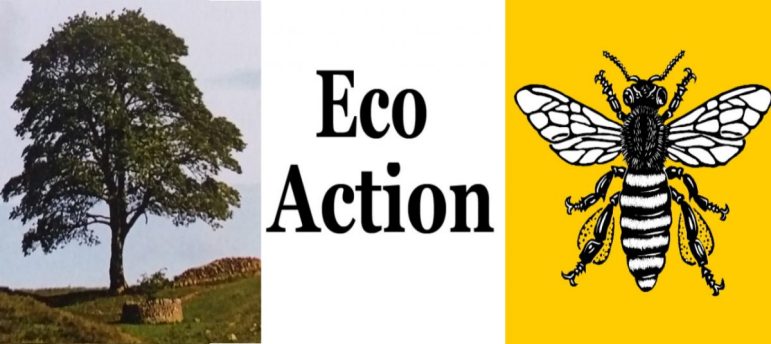MANY of us enjoyed watching the TV series ‘Wild Isles’ in which Sir David Attenborough and his team showed us different sections of our environment, (the extra documentary ’Saving our Wild Isles’ is available on iPlayer).
We are fortunate in Britain to have such diverse natural habitats, but one question which cropped up repeatedly was about biodiversity and the serious loss of those habitats resulting in extinction of plants and animals. There are choices to be made concerning land management which are crucial to our survival as humans, due to our dependence on nature.
After the Second World War, agriculture developed to feed the increasing population. More land was enlisted for agriculture by removing hedges and woodlands, and draining wetlands.
Higher yields of crops were achieved by the use of artificial fertilisers, as well as herbicides and pesticides. Unfortunately these methods, although successful in producing more food, resulted in a huge loss of biodiversity, as well as deterioration of soil and significant production of carbon emissions.
One of the most serious effects of the use of chemicals has been the loss of insects. Since 2004 the insect population has dropped by 64 per cent. Since three quarters of food crops depend on pollinators we are now in serious trouble.
Our current food system is unsustainable, and will crash unless we take immediate action. We urgently need to increase biodiversity. Now we must restore nature positive farming practices and give land back to nature.
This can be done by balancing wildlife with crop production, restoring water catchment, reducing ploughing, encouraging predatory insects and preserving 10 per cent of farmland for nature. Watch the 23 minute video ‘Save Our Wild Isles: Hungry for Change’ on YouTube – produced by WWF, the RSPB and the National Trust working together.
Several factors will contribute towards these changes. Government policy is crucial in terms of ensuring that farmers can maintain a profitable livelihood whilst transitioning to regenerative farming. Currently only 11 per cent of government finance spent on agriculture encourages regenerative practices.
Reducing the huge amount of food waste is key, as well as supermarket policies and financial institutions realigning to support farmers and locally grown food.
We all have choices to make about our diet, and how we shop for food. Realising that 85 per cent of land in the UK is used to graze animals or grow fodder for animals, we need to reduce our consumption of meat.
This amount of land for animals is a very inefficient way of providing nutrition for ourselves. In terms of shopping for food, we should apply the LOAF principle: Local, Organic, Animal friendly, and Fairtrade. If we don’t act really quickly at the national level the shelves will be permanently emptying in our shops. The UN warned three weeks ago that we have just five years to make enough changes to save us.
To join Extinction Rebellion Bromsgrove – which has produced this article – text Ros on 07804 251731.











